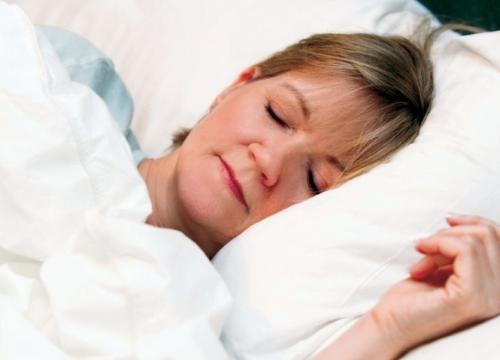Sleep Problems in Parkinson’s
Most people with Parkinson’s disease (PD) have trouble getting a good night’s sleep. Both disease symptoms and anti-Parkinson’s medications can interfere with nighttime rest. Fortunately, there are effective medications for many sleep problems. Some common sleep issues for people with Parkinson’s are listed below, along with tips for better sleep. If you are experiencing any of these sleep problems, tell your healthcare provider. He or she can recommend a sleep specialist, if needed, and talk to you about medications and other possible strategies to help you sleep better.
Insomnia
People with Parkinson’s usually fall asleep without much trouble but wake up frequently throughout the night and have trouble falling back asleep. There are many possible reasons: Tremor may wake you up. Vivid dreams, a side effect of levodopa-based medications such as Sinemet, can disturb sleep. Difficulty getting comfortable, whether from pain or because it is hard to turn over in bed, can keep you awake. And people with PD often have nocturia — excessive urination at night. Getting up frequently during the night to go to the bathroom keeps you from sleeping.
Daytime sleepiness
Sleep disorders (like those below), medications, and mental health disorders (especially depression), among other things, can all lead to excessive daytime sleepiness. Furthermore, the same changes in the brain that lead to Parkinson’s motor symptoms can affect mood, thinking, and other aspects of your health, including the sleep-wake cycle.
Inverted sleep cycle
Napping during the day can make it harder to sleep at night. If you nap frequently, it may lead to a cycle of staying awake at night and spending more time sleeping during the day.
Early morning awakening
Whether it is a habit from old work schedules or because of an early bedtime, people with Parkinson’s often wake up early in the morning. It may become necessary to adjust your sleep schedule.
Sleep apnea
People with sleep apnea stop breathing for short periods of time during the night. This prevents them from entering the deep, restorative stage of sleep. A few common symptoms of sleep apnea are loud snoring, gasping or choking after a pause in snoring, and dry mouth upon awakening. In the general population, sleep apnea is associated with obesity and cigarette smoking, but this is not the case in PD. There are several treatments options for sleep apnea, depending on its severity.
REM sleep behavior disorder (RBD)
REM stands for rapid eye movement. This is the stage of sleep when dreams take place. People with REM sleep behavior disorder act out their dreams, which can be violent. RBD is one of the early warning signs of Parkinson’s. Healthy people with RBD have a higher risk of developing Parkinson’s. RBD can be treated with the drug clonazepam (brand name Klonopin and others).
Restless legs syndrome (RLS)
People with RLS feel unpleasant, uncomfortable sensations – often described as “creepy-crawly” – in their legs. This results in the urge to move the legs. Moving relieves symptoms, but only temporarily. Several medications are available to treat RLS.
Managing Sleep Problems
If you experience any of these sleep issues, speak with your healthcare provider to determine the best treatment options. As noted above, there are medications available for some sleep disorders. There are also many strategies that can help you sleep more soundly at night. Like brushing and flossing to maintain good oral hygiene, the following tips can help you maintain good “sleep hygiene.”
Daytime Tips for Better Sleep
- Wake up at the same time every day, using an alarm if you have to.
- Get out of bed right after you wake up. Too much time spent in bed can lead to more waking at night.
- Eat regular, healthy meals, and eat at the same time every day. Three to four small meals are better than 1-2 large meals.
- Limit daytime napping to a 40-minute NASA nap (yes, tested by astronauts!). Too many or too-long naps can make sleep at night more difficult.
- Do not drink coffee, tea, sodas, or cocoa after noon. They contain caffeine and can interfere with normal sleep.
- Do not drink alcohol after dinner. It may help you fall asleep faster, but makes sleep shallower later in the night. Alcohol can also make snoring and sleep apnea worse.
- Use caution when taking headache and cold medicines. Some contain stimulants that can affect sleep.
- Stop smoking. Cigarette smoking stimulates the body and makes sleep difficult.
- Increase or start doing daily exercise. Regular exercise helps to deepen sleep. Avoid heavy exercise 2 hours before bedtime.
Nighttime Tips for Better Sleep
- Get into bed only when you are sleepy. Learn to distinguish between fatigue and sleepiness.
- Use your bed only for sleep and sexual activity – not for reading, watching TV, arguing, catching up on work, etc. And no pets!
- If you are hungry at bedtime, eat a small snack or drink a glass of milk. Do not eat sugary snacks or chocolate or drink tea or coffee. Large meals before bedtime can worsen sleep.
- Develop a sleep ritual. Do something relaxing before bed such as reading or listening to music. This tells your body that it is time to settle down.
- A warm shower or bath an hour before bedtime can help you to fall asleep.
- End screen time at least an hour before bed. Rarely is the late-night news soothing or relaxing! If weaning yourself from a TV habit is hard, try a relaxation or nature sounds recording.
- Do not use over-the-counter sleep medications. They may help you fall asleep faster, but they do not help you get deeper sleep. They can also make snoring and sleep apnea worse.
- Keep light levels low. Use a bathroom or hallway nightlight to prevent falls.
- Keep the bedroom temperature cool for better REM sleep.
- Customize your sleep environment. Invest in a good mattress and pillows.
- Block out noise as much as possible. Occasional loud noises disturb sleep even in people who cannot remember them in the morning. The hum of a fan can help cover up some noise.
- Do not watch the clock and worry about lost sleep. Turn the clock face away.
- Do not try to force sleep. If you cannot fall asleep:
- Get out of bed.
- Move to another room and do an activity: read or listen to soothing music until you are sleepy.
- Go back to bed.
- If you still can’t sleep, get out of bed again and repeat the cycle.
Related Materials
Related Blog Posts

Sleep and Parkinson’s: Non-Motor Quality of Life

